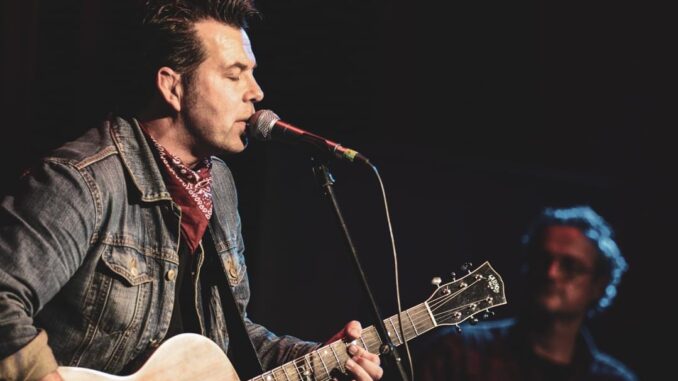
Americana in one of Europe’s largest music markets.
We’re now into the second half of this series and it marks a move away from those countries where americana music is quite marginalised to a set of countries where the genre is reasonably well-established and supported. When I started researching this article on the German americana scene, I turned to writers Kai and Carmen Nees for some advice on relevant artists. I reviewed their excellent book on Blaze Foley, for Americana UK, some time back and knew they were active concert attenders and followers of americana in Germany. They were, as always, extremely helpful and I’m grateful for their assistance.
Germany is a very different market to the ones we have dealt with up to now. The American presence in West Germany, in the post-war years, meant that there has been a good understanding and appreciation of American music for some time. Germany had always been a receptive market for touring bands and, with the country reunified, it has become a sizeable single territory for bands to work in. In recent years it has seen a number of major americana acts appearing at many of the big cities and, in contrast to France, where the few americana bands that do visit rarely venture outside Paris, German audiences can be fairly certain of being well served in most of their major music venues. Bruce Springsteen, Jason Isbell, Wilco, Lucinda Williams, The Jayhawks and many more have all toured there relatively recently and, since its formation in 2016, the Static Roots Festival, situated in Oberhausen, in the North West of the country, has been hailed as one of the best music festivals in Europe and bears the motto “roots music to feed your soul.” This year’s headliners (2024) included The Delines and The Sadies.
Given that Germany seems quite fertile ground for musicians producing music based on or influenced by americana, where are they drawing their inspiration from? Singer/songwriter Markus Rill, one of the more established names in German americana, draws on a fairly eclectic but familiar set of influences, “Early on I was deeply into artists who wrote their own songs. Loved Mellencamp and Springsteen as a teen, heard of Steve Earle when I was 18/19 and he really rocked my world. I also studied American and English literature and a lot of things I learned there directly applied to songwriting, particularly the way Hemingway conveys a ton of information subliminally, Raymond Carver & Raymond Chandler (and, really, all the greats) do so as well. So I’m drawn to well-written songs. Dave Alvin, Gretchen Peters, Steve Forbert, John Hiatt, Gillian Welch, Robert Earl Keen and others have been and still are very inspiring. Dylan and Townes van Zandt are giants”.
Tobias Panwitz, who started out performing and recording under the name of Trailhead, paints a slightly different picture. “My connection to nature, especially long-distance hikes, features a lot in my lyrics. The earliest influence on the vocal harmonies I always end up doing on my records surely comes from the Beatles and possibly from the Eagles too. And going beyond immediate experiences and musical influences, I’d say the time that I spent many years ago, working in Northern California’s Redwood National Park, was sort of an initiation for me spiritually and musically. Apart from getting into so many great bands, the Grateful Dead, Phish, Gillian Welch, Ben Harper, it was also experiencing the backcountry with all that small town americana that I learned to love deeply”.
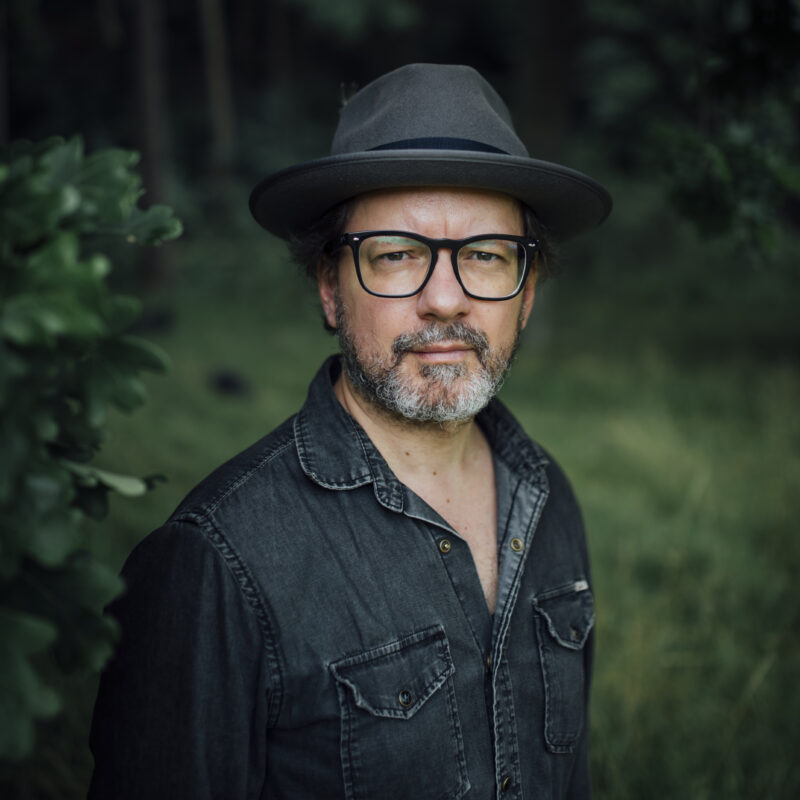
German americana artists do seem to draw heavily on purely American influences, the American landscape and Townes van Zandt came up with everyone I talked to, so I wondered if there was any way in which their own culture influenced their work. Juergen Bichlmeier, under the name Mr Jones, has been making americana based music since the 1990s and has ten albums to his credit, including this year’s “To Live Is To Fly”, an album of Townes Van Zandt songs and a collaboration with Markus Rill and Robert Hasleder. He told me, “I’m wide open when it comes to cultural influences and consider myself as very cosmopolitan. Nevertheless, I am born and raised here in Bavaria, in Germany and that leaves marks. My music is entirely influenced by American music and by American folk songs. My writing, my lyrics, have been influenced by the classical American topics like the highway and the wide open country. But more and more I write personal songs and since my life takes place here in Germany, in Europe, the topics have changed and so German culture, comes into the songs”.
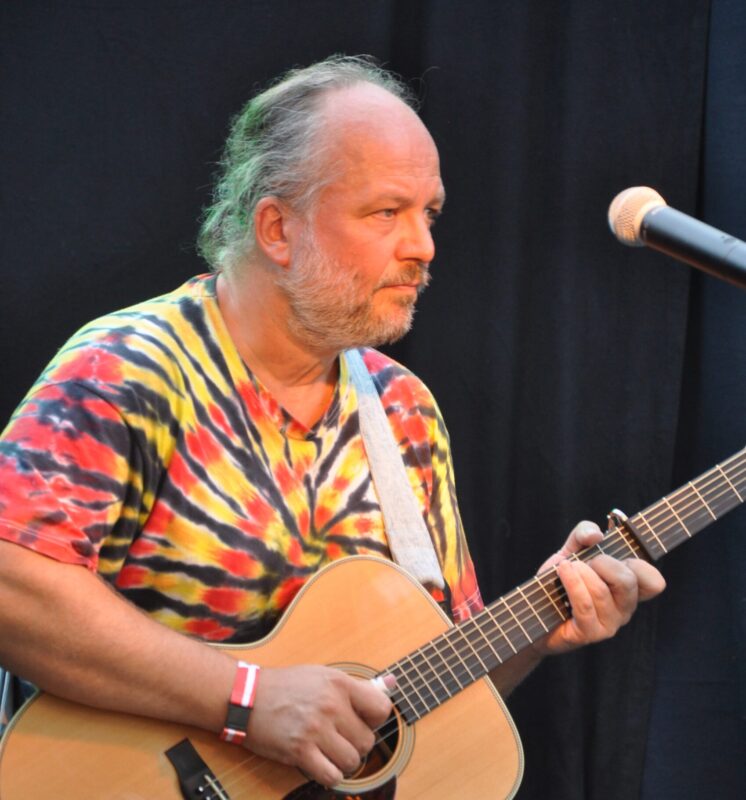
T.Bo Gawer, who works mainly with his wife, Ive, (they have been described as Germany’s Johnny Cash and June Carter) and also does occasional solo gigs, sees it more simply, “I grew up surrounded by corn fields and my grandparents had a small farm with cows, chickens and pigs. Somewhere between those things and a John Deer tractor was me playing. Our landscape is between the old “father Rhein” and the hills of the black forest. My forefathers used to play harmonica, accordion, guitar and they played wherever they could and whatever they could; music in our folk style. I’m a country boy”.
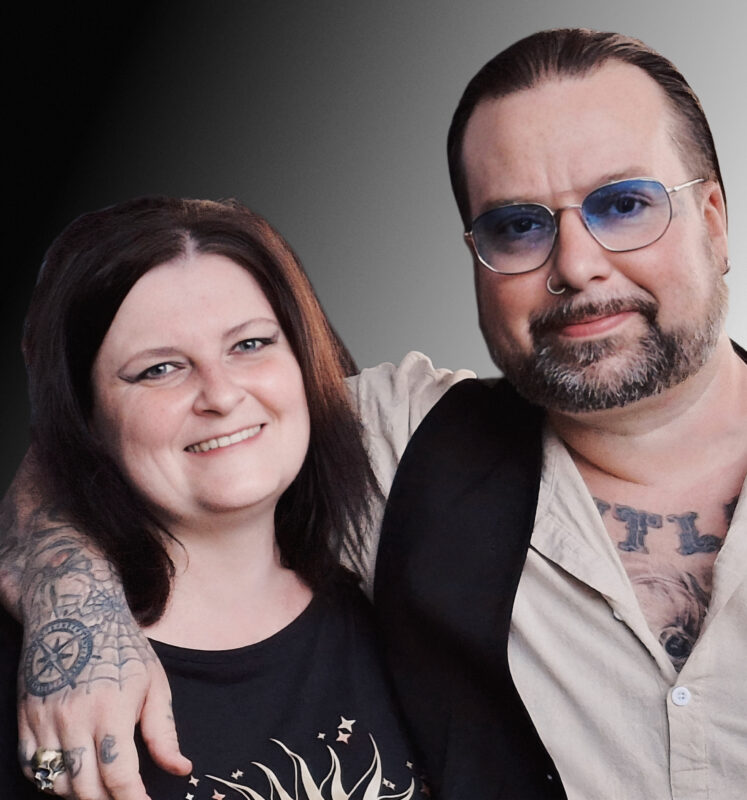
Ive & T.Bo Gawer
What are the German audiences like and what draws them to americana music? Mathias Gaede comes from Frankfurt, playing his brand of country-flavoured americana in venues around the city and beyond. He thinks the German audiences who appreciate americana do so for the simple, uncluttered nature of the music, an appreciation of that axiom, ‘three chords and the truth’. “I think some Germans are down-to-earth people who like it simple and love catchy melodies. That was already the case with Mozart, Beethoven, Bach etc. Great melodies. Which also influenced many bands. It’s the same with me, I make simple music, but there always has to be a melody involved”.
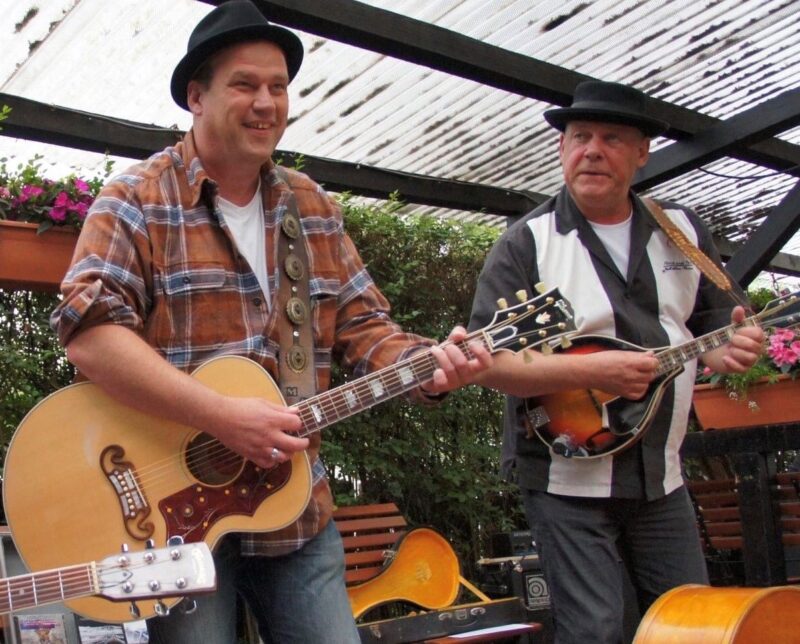
I found it particularly interesting that all the musicians I talked to for this series, in all the countries, not just Germany, described their audiences in much the same way. Audiences for americana artists are that bit older and are more serious about the music they listen to. They want to hear good storytelling and intelligent songs. Markus Rill, whose latest album, “Snapshots”, was released at the beginning of November, and who has racked up an impressive number of recordings over a more than twenty-year career, one that has seen him grace stages throughout Germany and in other European countries, including the UK, describes his audience as “people who are interested in music, more so than casual listeners. A lot of them old enough to know Bob Dylan and the Stones and savvy enough to have heard of Townes”. Tobias Panwitz says that German americana fans “deeply care about music, about buying and listening to albums, about the beauty of, say, a vinyl record or a CD booklet. And they enjoy a little story in between songs”. But he goes on to elaborate that, “not everyone here has positive associations with American culture though. Many don’t speak English well enough to follow the lyrics. That’s why a few years ago I started focusing more on writing in German”.
It’s that issue of language again that does seem to keep coming up when we talk about americana in Europe and it seems to split the artists in Germany much as it did those in other countries. “I think the language is a huge hurdle for non-native speakers. Writing lyrics that are moving, succinct and poetic is a challenge for anybody. Doing so in a language that is not the one you grew up in, doubly so. I know a ton of people and have a lot of friends who are deeply immersed in the music but maybe not as much in the language. I‘m doing my utmost to stay immersed in the English language, specifically American English. I don’t think standard German lends itself to rock‘n‘roll naturally, it doesn’t have the finger-snapping coolness to come up with a phrase like ‘Whole Lotta Shakin‘ Goin‘ On’. I‘ve dabbled in translating a song here & there into German but I‘m not exactly drawn to trying to write in German”. Markus Rill
“Most of the artists in Europe have come a long way to be close to the style, not all of them succeed completely, some don’t go the whole way, which is absolutely OK, so we have step-by-step style graduation. I always wanted to go the whole way and I’m glad that the press named me “an ambassador of American music in Europe“. Mr Jones
If language is an issue, can there be a long-term future for this music in Germany and in wider continental Europe? Is the language always going to be a possible barrier to the wider spread of this music? Mathias Gaede thinks that the music needs to diversify a little more, “I would be happy if americana music became a little more diverse. Because it’s all becoming the same. The bands in americana want to sound just like Neil Young and acoustic artists want to sound like Gillian Welch & Dave Rawlings”. While Tobias Panwitz has a more positive spin on the future of the music on our continent, “the fan base for americana music is exclusive but strong, spread all over the continent. Which makes me wonder why that is. The influence of American culture ever since the war is easy to explain. Movies and rock’n’roll. But why americana? For me, it’s the connection of rootsy music, something that seems to grow from the ground, the soil, very much connected to the earth. The blues influence separates it from country and folk I think. And it has not been over-commercialized. Maybe that’s why it connects with so many people. The “Oh Brother Where Art Thou” soundtrack and the Johnny Cash movie were catalysts for it, making americana much more popular than it was before. But why did it stick around? Maybe because there is no equivalent in our respective cultures that fills that space. Something truthful, something that reflects our pain and offers relief”. Personally, I like Panwitz’ take on the situation and I think there’s much in what he says. I’m not sure about reflecting pain and offering relief but I do think that connection to a simpler way of life, which a lot of modern music doesn’t currently make, has a broad appeal for many of us. I do think that roots connection is particularly strong in German americana, and that may be because Germany has a strong folk tradition of its own. Of course, in the process of all this introspection and trying to find links and connections that help to spread this music or, alternatively, hamper its advance, we could be in danger of overthinking the whole thing. So I also liked T.Bo’s response to this question of the future and where the music is going. “I do my own thing in music and writing and I’m not so far into the stories and music of other bands. I lived on the street, worked in the fields and now I just wish there were more festivals and locations and promoters to support this kind of rough and raw music! Now, I’m trying to live a peaceful life and make new adventures. And I draw from that fund for my songs”.
Amen to that, brother.



Thanks so much for your research and digging to give us this beautifiul overview of continental Americana music!
Thanks for the kind words. I’m very glad you’re enjoying it.
Thanks for the Static Roots Festival shout out, Rick! ✌️❤️🎸
We’re traveling musicians who are hoping to visit Germany next year and this is a great introduction into helping us find some great music. Will definitely be checking out some of these artists- great, insightful article. 😍🎵
Thanks for that. I’m really pleased you found it useful. good luck in Germany.